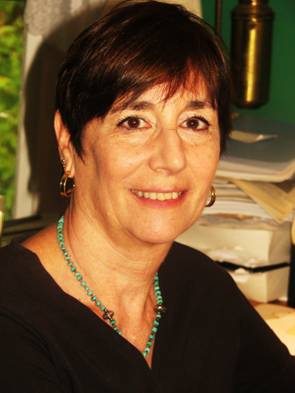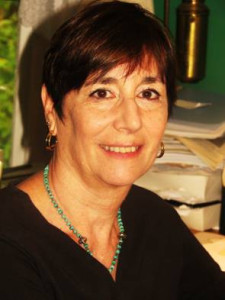Marie Ponsot’s Poem “Language Acquisition”
Joy Jacobson is CHMP’s poet-in-residence. Follow her on Twitter: @joyjaco
I recently watched an online video of a roundtable discussion, Recovering Syntax: A Poet’s Struggle with Aphasia, held in October at the Philoctetes Center for the Multidisciplinary Study of the Imagination. In it, the poet Marie Ponsot describes the stroke she had last year, at age 89. And she details, with remarkable fluency, her experience of aphasia, an impaired ability to process language—in speaking, writing, reading, or hearing—that can result from brain injury.
“There’s something that I have in my mind that I sort of want to say and it’s not going to say itself,” Ponsot says of her efforts at recovering speech, “so I go under it and speak on the other side of it.” In the following poem, written before her aphasia and published in her 2009 collection, Easy (reprinted with the author’s permission), Ponsot explores the terrors and joys of learning to talk.
Burn, or speak your mind. For the oak to untruss
its passion it must explode as fire or leaves.
The delicious tongue we speak with speaks us.
A liquor of sweetness where its root cleaves
ripens fluent, as it runs for the desirous
reason, the touching sense. The infant says “I”
like earthquake and wavers as place takes voice.
Earth steadies smiling around her, in reply
to her self-finding pronoun, her focal choice.
We wait: while sun sucks earth juices up from wry
root-runs tangled under dark, while the girl
no longer vegetal, steps into view:
a moving speaker, an “I” the air whirls
toward the green exuberance of “You.”
In trying to “acquire” the language of this poem, I copied it out, longhand. I read it aloud. Try it. Give your voice to these lines: “while sun sucks earth juices up from wry / root-runs tangled under dark…” Poetry is an oral (and aural) art form, and by reading Ponsot’s poem aloud I begin to feel the way language is discovered.
This sonnet opens with a couplet, toppling convention (a Shakespearean sonnet ends with a pair of rhyming lines). That upending seems important. In the beginning was the Word, the Biblical prophet said, but this poem begins with a wordless tree, an oak. The need for utterance starts before we have the capacity for speech—that is, before we acquire the quality that makes us human. The passion must therefore express itself or destroy itself.
It’s an apocalyptic vision, but this universe also has its mercies. The infant apprehends the world through the tongue, organ of taste and of speech. She detects the “liquor of sweetness” in everything, knowing the world through tasting it, touching it. (It’s no surprise to learn that Ponsot reared seven children.) In making that single, long vowel sound, “I”—“her self-finding pronoun”—she moves earth. As sound becomes word, infant becomes individual. And “no longer vegetal” she disentangles from the primeval, wordless root-runs she sprang from to find “You.”
It’s a love poem to language, isn’t it?
Just a few weeks before her stroke Ponsot told the online journal Guernica, “At the stage of babbling, everyone is a poet. In those first three months of life, everyone says, ‘ah-bah bah bah bah bah bah bah bah’ or whatever consonants they’ve tapped out in their little brains.” Ponsot’s poem works on many levels: while it maps out an infant’s delighted discovery of language, it also depicts the pleasures of learning to read poetry. And, rather presciently, it lays out the method by which Ponsot herself would reacquire language in her ninth decade.
After her stroke, Ponsot’s students and friends visited her in her home and read poems to her as part of her rehabilitation. As of last fall she had recovered much, but not all, of her speaking and writing abilities; she hadn’t yet written any poems. Yet because she’s an artist for whom language has been not only a medium but also a subject, I’m hopeful that as she celebrates her 90th birthday this week, she is acquiring new ways with language, inventing a new poetry.
• Diane Ackerman’s memoir, One Hundred Names for Love: A Stroke, a Marriage, and the Language of Healing, in which she recounts how her husband, the writer Paul West, lost and recovered language after a stroke, has just been published.
• The National Aphasia Association provides links to clinical, social, and legal support options for patients and families.
• Visit aphasianyc.org for New York City resources.
Joy Jacobson is CHMP’s poet-in-residence. Follow her





